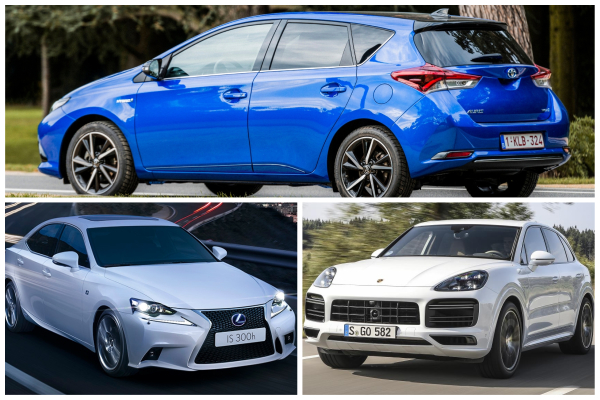The vehicles of the Lexus , Porsche and Toyota brands are the most reliable, since they are the ones that suffer the least damage, according to a report by the Organization of Consumers and Users ( OCU ). Behind the Asian brands Daihatsu , Honda and Subaru , in addition to the European Audi. In contrast, the vehicles that suffer the most damage are those of the brands of Alfa Romeo , Tesla and Land Rover .
Regarding the most reliable models, the Volvo XC40 2000D (more reliable in the diesel category), the Mazda XC3 and the Toyota Auris stand out , as those that break down the least in the gasoline category and the Kia Niro and Lexus IS , such as more reliable models with hybrid engine, according to their owners.
As for the most frequent type of breakdown, respondents point out that the electricity related to batteries, fuses, light bulbs, closures and window regulators are the most common, since they have affected 16% of the vehicles. They are followed, with 9%, those that affect the brake system, while six out of every one hundred faults have to do with the power system (carburetions, fuel pumps or injection systems).
The other most frequent faults are those related to the engine (valves, gaskets, cam shafts), the steering (shock absorbers, tires and shafts) and those of heating and ventilation.
The ones that provide the most satisfaction
As for the degree of satisfaction of the owners with their vehicles, Porsche and Tesla are the first on the list, while, on the other hand, there are Fiat , Lancia and Chevrolet .
OCU notes that although reliability is an important factor, it is not always the vehicles that break the least that provide the greatest satisfaction. In this sense, Fiat , Daihatsu and Suzuki are the ones that have the greatest difference between the score obtained in reliability and the one awarded for satisfaction.
The report also emphasizes that there are different factors that count in the choice of a car. 39% of respondents highlight reliability as the main reason they give priority when choosing a car. 22% point to size and capacity according to personal and family needs. 8% of drivers give priority to the price and another similar percentage gives it to the design over any other option.
7% indicate consumption and 5% mark the brand as a determining factor in the acquisition of the vehicle. Finally, and despite the debate about fuel and future restrictions on access to cities, 3% of users consider the carbon dioxide (CO2) emissions or the most important factor when choosing a vehicle environmental impact.
OCU develops its reliability ranking with the responses to a survey in which more than 40,000 drivers from five countries ( Belgium, Spain, France, Italy and Portugal ) have participated. In Spain, 7,760 users have been answered and asked about the vehicle they own, the breakdowns they have suffered and their level of satisfaction.
According to the criteria of The Trust Project
Know more- Motor
- Tesla Motors
- Audi
The Land Rover Defender is reinvented to continue being an icon in the s. XXI
SportsThe misadventure of the legend: other athletes victims of fatal accidents
Anticipation Lexus explores new territories with its electrification plans

